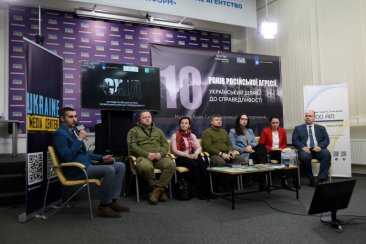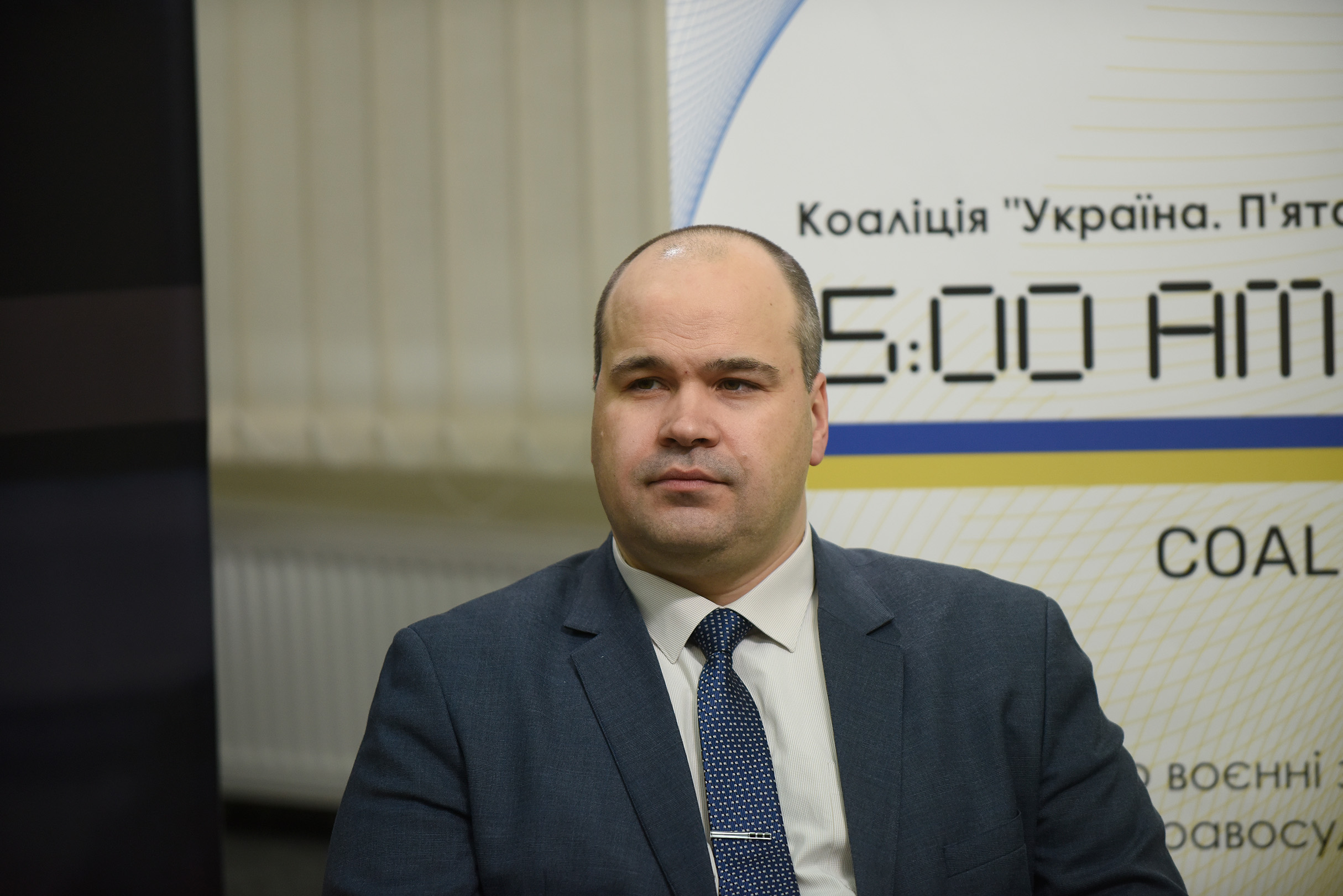Contact center of the Ukrainian Judiciary 044 207-35-46

The role of international judicial institutions in the restoration of justice is crucial, especially when it comes to the need to bring to justice for war crimes the top military and political leadership of the aggressor state, as they enjoy immunity under international law. At the same time, most of the cases related to the armed conflict provoked by russia, which began in Ukraine eight years before russia's full-scale invasion of Ukraine, are being tried in Ukrainian courts.
This was emphasised by Mykola Mazur, Judge of the Grand Chamber of the Supreme Court, during the "East" panel of the media marathon "10 Years of Russian Aggression in Ukraine. The Road to Justice", dedicated to discussing the unprecedented challenges Ukraine has faced over the past decade.
Mykola Mazur shared his experience of the events that began in 2014: "Back then, I was working as a judge in the small town of Popasna, Luhansk region. I remember the times when armed gangs appeared in Popasna. However, we continued to pass judgments in the name of Ukraine, even though there were cases in some courts where such armed gangs obstructed the work of the courts and demanded that Ukrainian judges administer justice in the name of the illegal newly formed 'republics'. Later, Ukrainian soldiers liberated Popasna and the town ended up on the demarcation line. According to the judge, despite the periodic shelling of the town, Ukrainian judges continued to administer justice there.

According to the speaker, the events that began in 2014 have changed the lives of many people. They have also changed the way the entire Ukrainian judicial system operates. At that time, the legal system and legislation of our country were not adapted to the challenges posed by the aggression of the russian federation. One of these challenges was the fact that some courts ended up in the temporarily occupied territory of Ukraine and, as a result, ceased to function. Therefore, the state had to ensure that citizens living in the temporarily occupied territories had access to justice.
"Such mechanisms were developed. Legislation was passed that allowed the jurisdiction of the courts in the occupied territories to be changed. The first such decision was taken in September 2014. Legislation was also adopted to allow the rapid transfer of judges from courts in the temporarily occupied territory to courts that continued to administer justice," said Mykola Mazur. He explained that the mechanisms developed back then were helpful now, after the outbreak of a full-scale war on 24 February 2022. This made it possible to take decisions to ensure the functioning of the judiciary during the first month of the full-scale invasion.
At the time, Ukrainian courts also faced problems in dealing with new categories of cases, the speaker noted. The first category includes cases related to the prosecution of persons involved in the activities of the so-called "Donetsk People's Republic" and "Luhansk People's Republic" terrorist organisations. The second - cases related to the protection of human rights under occupation, as many issues arose that could not be resolved under legislation that was not adapted to wartime.
Among these problems was the question of establishing the facts of birth or death in the temporarily occupied territory. And it was precisely this issue that was resolved through the development of case law: the courts began to apply the 'Namibian exceptions' - a principle of international law first formulated by the International Court of Justice in the case of the occupation of Namibia in 1971. The essence of this principle is that acts of the occupying power should generally not be recognised as lawful, unless they could undermine fundamental human rights, such as acts relating to the registration of births, deaths and marriages. Therefore, Ukrainian courts began to take into account such documents issued in the temporarily occupied territories along with other evidence.
Mykola Mazur also stressed that criminal proceedings related to the russian federation's aggression should be considered by Ukrainian courts, as no international body is able to consider thousands of cases related to both the events in eastern Ukraine since 2014 and the events during the full-scale invasion. Among such high-profile cases is the verdict against former President of Ukraine Viktor Yanukovych, who was convicted of high treason and aiding and abetting in the planning, preparation, launching and waging of an aggressive war against Ukraine. The verdict was upheld by the Supreme Court. Other officials who contributed to this aggression were also convicted. For example, the Supreme Court upheld the verdict against the former president of the so-called Supreme Court of the so-called Donetsk People's Republic, who was a russian citizen.
"I think that the experience accumulated by the Ukrainian courts is significant. Of course, the courts could not solve all the problems that started in 2014, because some problems cannot be solved for objective reasons, as many case files were lost in the occupied territories. However, there is no doubt that Ukrainian courts (along with international courts) can make a significant contribution to the establishment of justice," said Mykola Mazur.
The media marathon was organised by the Ukraine-Ukrinform Media Centre.
Photos courtesy of the organisers.
The video of the event is available at https://www.youtube.com/watch?v=QhO2dOZaQwc.